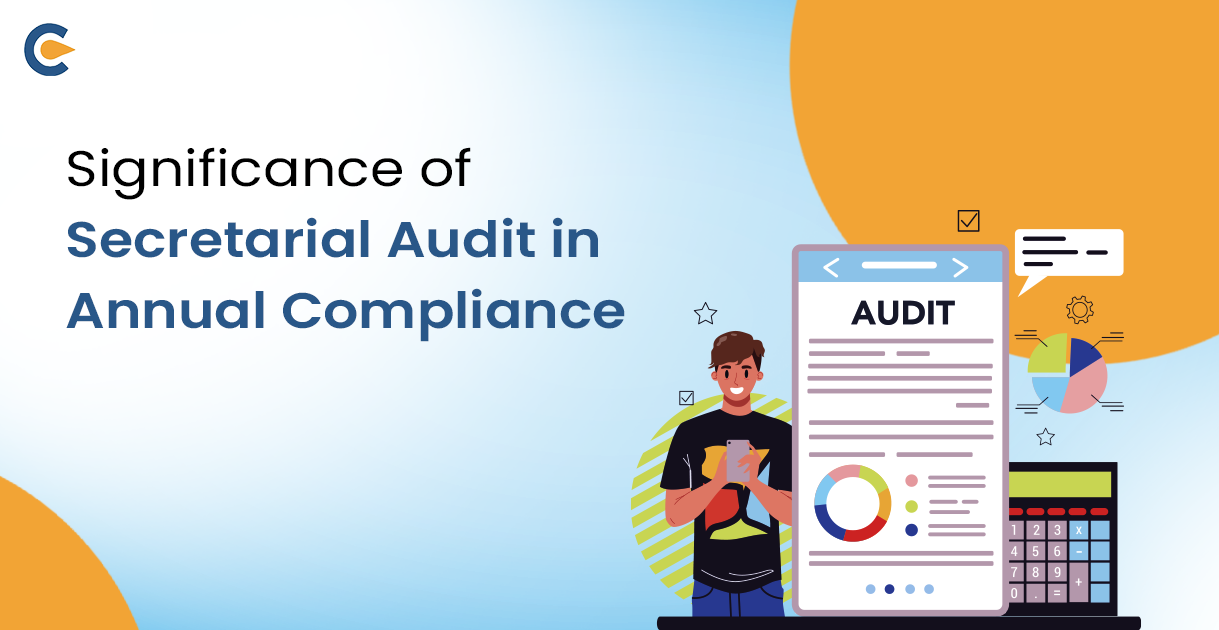Secretarial Audit Limits are essential in ensuring that a company’s internal policies and regulations are followed. Establishing these boundaries is crucial since it will serve as a checkpoint for the business, indicating any potential risks to operations and reputations. The Secretarial Audit Limitations minimize the risk of non-compliance and associated legal repercussions by ensuring that the company’s internal processes and procedures are in line with legal and regulatory standards. In the end, this contributes to the company’s continued transparency and integrity.
What is Secretarial Audit Limit?
A Secretarial Audit Limit (SAL) is a set of guidelines and procedures established by a company to ensure the compliance of its internal operations with legal and regulatory requirements. It is a crucial part of the governance framework for the organization and was created to find and handle any risks and areas of non-compliance. The Secretarial Audit Limit acts as a checklist for the company’s management, ensuring that all the internal processes and procedures are aligned with relevant laws and regulations.
The purpose of the Secretarial Audit Limit is to enhance the transparency & accountability of the company by routinely analyzing and reviewing its internal operations and reporting it if there are any deviations or issues.
Applicability of Secretarial Audit Limit
The Secretarial Audit is applicable to different types of business:
According to section 204(1) of The Companies Act, 2013, which is read with rule 9 of Companies (Appointment and Remuneration of Managerial Personnel) Rules, 2014, states that-
- Every company that is listed or
- Every public company which has a paid-up share capital of Rs. Fifty Crores or more or
- Every public company which has a turnover of Rs. Two Hundred Fifty Crores will have to attach a Secretarial Audit Report along with the Board’s report.
Objectives of Secretarial Audit Limit
Below are some of the objectives:-
- SAL helps in verifying and reporting of the compliance which is of applicable laws and Secretarial standards.
- Secretarial Audit Limit helps in pointing out the non-compliances and inadequate compliances, if any.
- SAL protects the interests of the employees of the company, customers the, society and various other stakeholders.
- SAL helps to avoid all unjustified legal actions or penalties by the law enforcement organization.
Indian Acts Which Are Associated With Secretarial Audit Limits
According to the terms of Form MR-3, the Secretarial auditor has to examine and report any violation of the below given five specified laws:-
- Companies Act of 2013 and the rules which are made thereunder.
- The Securities Contracts (Regulation) Act of 1956 and the rules which are made thereunder.
- The Depositories Act, 1996[1] & the Regulations and Bye-laws which are framed thereunder;
- The Foreign Exchange Management Act of 1999 and the rules which are made thereunder to the extent of External Commercial Borrowings, Foreign Direct Investment and Overseas Direct Investment.
- Following are the
regulations and guidelines which are prescribed under the Securities &
Exchange Board of India Act of 1992:-
- The SEBI (Substantial Acquisition of Shares & Takeovers) Regulations of 2011;
- The SEBI (Prohibition of Insider Trading) Regulations of 1992/ SEBI (Prohibition of Insider Trading) Regulations of 2015;
- The SEBI (Issue of Capital & Disclosure Requirements) Regulations of 2009;
- The SEBI (Employee Stock Option Scheme & Employee Stock Purchase Scheme) Guidelines of 1999/ SEBI (Share Based Employee Benefits) Regulations of 2014;
- The SEBI (Issue & Listing of Debt Securities) Regulations of 2008;
- The SEBI (Registrars to an Issue & Share Transfer Agents) Regulations of 1993 which is regarding the Companies Act and the dealing with clients;
- The SEBI (Delisting of Equity Shares) Regulations of 2009; and
- The SEBI (Buyback of Securities) Regulations of 1998;
- SEBI (Listing Obligations & Disclosure Requirements) Regulations of 2015.
Advantages of Secretarial Audit Limit
Following are the advantages of Secretarial Audit Limit:
- Compliance: Secretarial Audit Limits assist businesses in ensuring that all appropriate legal and regulatory standards are met by their internal processes. As a result, there is a lower chance of non-compliance and possible legal repercussions.
- Risk management: Secretarial Audit Limits assist in identifying and addressing any risks that could have a detrimental impact on the operations and reputation of the company by routinely assessing the organization’s internal processes and procedures.
- Improved Openness: The SALs encourage accountability and transparency in the business’s activities, helping to increase stakeholder trust.
- Improved Governance: SAL offer a framework for the management of the firm to adhere to, assisting in ensuring the efficient operation of the business and fostering good governance.
- Improved Record-keeping: By assisting businesses in keeping correct and current records, the SAL lower the risk of errors and poor management.
- Improved Communication: The Secretarial Audit Limits work to improve communication between the organization and its stakeholders by ensuring that the operations and decisions of the company are made and understood in a clear and understandable manner.
- Resource Efficiency: Businesses can discover areas for improvement and maximize the use of their resources, eliminating waste and inefficiency, by routinely evaluating and updating the SAL.
- Competitive Advantage: Businesses who employ SAL can set themselves apart from rivals and show their dedication to compliance and good governance, giving them an advantage over rivals.
- Protects Company Reputation: SAL serve to safeguard the company’s credibility by assuring compliance with legal and regulatory standards, encouraging stability and growth over the long run.
Disadvantages of Secretarial Audit Limit
Following are the disadvantages of Secretarial Audit Limit:
- Lack of Independence: The primary drawback of a secretarial audit is that the auditors are chosen by management, raising concerns about their impartiality. This could lead to subjective audit findings and a lack of objectivity.
- Limited Scope: The secretarial audit’s coverage only extends to the organization’s internal control systems and procedures; financial statements or financial performance are omitted.
- Lack of expertise: The quality of the audit may suffer if secretarial auditors lack the necessary knowledge in accounting, financial analysis, or auditing procedures.
- Reliance on Management Information: The secretarial auditor relies on information from management, and there is a chance that it may be insufficient or erroneous.
- Time Restrictions: Secretarial audits are typically performed once a year, which may not be sufficient to identify significant problems quickly.
- Limited Resources: Compared to external audits, secretarial audits frequently have fewer resources, which might affect the audit’s level of detail and completeness.
- No Legal Status: Secretarial audits are not legally recognized, and their findings are not subject to enforcement. The impact and use of the audit results may be diminished as a result.
- No Power to Enforce Recommendations: Recommendations in the audit report cannot be enforced by the secretarial auditor, which may result in management failing to be accountable for and implement the recommendations.
- Limited Impact: Secretarial audits have a limited impact because the findings are kept inside to the business. This may reduce the company’s level of responsibility and openness.
Conclusion
In conclusion, SAL play a crucial role in ensuring the effectiveness of the secretarial audit. They help to set the boundaries for the auditor to operate within and ensure that the audit is focused, efficient and effective. Despite the challenges, the benefits of implementing secretarial audit limits far outweigh the difficulties. Companies that set appropriate limits are able to improve their overall governance, enhance their risk management processes and increase transparency and accountability. Therefore, companies are encouraged to consider implementing secretarial audit limits as part of their overall compliance and governance strategy.
Read Our Article: Understanding Secretarial Audit Applicability As Per Companies Act, 2013










